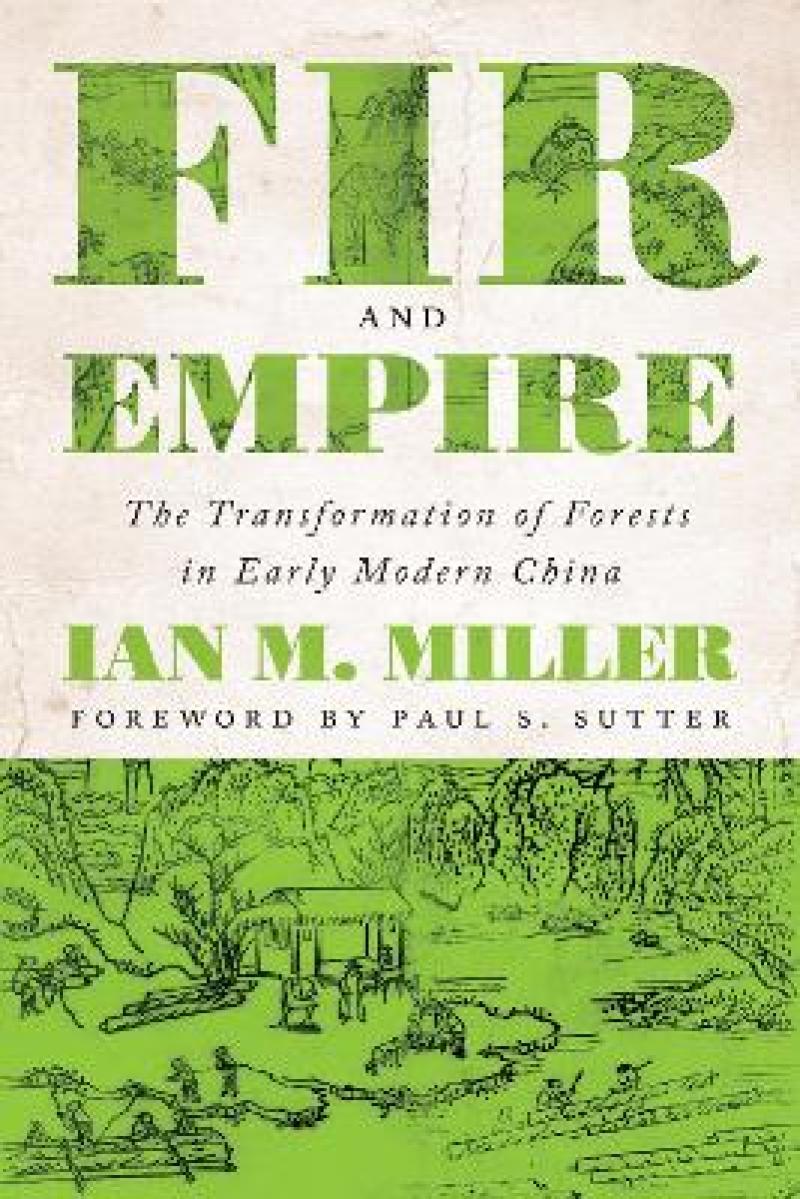<p>"Miller’s monograph, supported by solid evidence and compelling arguments, enables the reader to explore this long arc of Chinese civilization from the unique perspective of environmental history."</p>
Choice
<p>"Offers a transformation of our understanding of China’s early modern environmental history. . . a sweeping book. . . not only tells a story that will have wide impacts for the field, but manages to create an intimate look at what China’s forest management system looked like to those trying to operate and profit from it."</p>
New Books in East Asian Studies (NBN)
<p>"The concisely written chapters are packed with period surveys and local vignettes, which give this relatively short book considerable depth."</p>
Agricultural History
<p>"Miller has provided both historians of China and the environment with valuable new perspectives and a wealth of information."</p>
H-Environment
<p>"With clear prose, detailed maps, and ink brush paintings from primary sources, the book is a pleasure to read. Two appendices explaining the research methods and sources will find an eager audience among graduate students and other researchers. Undergraduates will appreciate carefully selected excerpts. All will apprehend that this book establishes new standards for scholarship on the long history of humans and forests in China."</p>
Environmental History
<p>"Ian M. Miller’s important book...has opened up a fascinating area of research and it invites exploration by many more adventurous scholar-pioneers."</p>
Journal of Chinese History
<p>"<i>Fir and Empire</i> provides a broad, long-term understanding of forest management, contextualized and compared with practices in Europe and in dialogue with Asian environmental history. It will change the way scholars understand Chinese environmental history and particularly the role of the state... This impressive book can and should reach a wide audience of readers."</p>
H-Asia (H-Net)
<p>"Miller's <i>Fir and Empire</i> is a richly detailed study of private and governmental forest management from the northern Song to early Qing (ca. 1000–1650s), based on careful and extensive reading of gazettes and other primary sources."</p>
Harvard Journal of Asiatic Studies
<p>"Ian M. Miller's<i> Fir and Empire</i> admirably challenges the currently well-established narrative of China's Great Deforestation through an imaginative and meticulous survey of historical evidence…[The book] demonstrates how a rigorous and creative approach to historical evidence can yield new and exciting findings that profoundly change our understanding of the past."</p>
British Journal for the History of Science
<p>"Miller succeeds in making this data-rich study readable, and it will be of interest to scholars and graduate students in Chinese history, environmental history, and comparative forest history."</p>
American Historical Review
<p>"Miller convincingly demonstrates that China's forest history is far more complicated than a unidirectional, homogeneous, process of deforestation by human devastation. Miller's academic investigation is in depth, comprehensive and innovative, making it a must-read book for scholars and lay readers interested in Chinese forest history."</p>
Environment and History
A CHOICE OUTSTANDING ACADEMIC TITLE
Restores China’s place in forest historyThe disappearance of China’s naturally occurring forests is one of the most significant environmental shifts in the country’s history, one often blamed on imperial demand for lumber. China’s early modern forest history is typically viewed as a centuries-long process of environmental decline, culminating in a nineteenth-century social and ecological crisis. Pushing back against this narrative of deforestation, Ian Miller charts the rise of timber plantations between about 1000 and 1700, when natural forests were replaced with anthropogenic ones. Miller demonstrates that this form of forest management generally rested on private ownership under relatively distant state oversight and taxation. He further draws on in-depth case studies of shipbuilding and imperial logging to argue that this novel landscape was not created through simple extractive pressures, but by attempts to incorporate institutional and ecological complexity into a unified imperial state.
Miller uses the emergence of anthropogenic forests in south China to rethink both temporal and spatial frameworks for Chinese history and the nature of Chinese empire. Because dominant European forestry models do not neatly overlap with the non-Western world, China’s history is often left out of global conversations about them; Miller’s work rectifies this omission and suggests that in some ways, China’s forest system may have worked better than the more familiar European institutions.
The open access publication of this book was made possible by a grant from the James P. Geiss and Margaret Y. Hsu Foundation.
A CHOICE OUTSTANDING ACADEMIC TITLE
Restores China’s place in forest historyThe disappearance of China’s naturally occurring forests is one of the most significant environmental shifts in the country’s history, one often blamed on imperial demand for lumber.
"This pathbreaking addition to the sparse English-language literature on China’s forest history far surpasses all existing works in terms of scope and scholarly rigor. Miller’s work and the arguments it advances could genuinely transform the field of Chinese environmental history."
Restores China’s place in forest history
Produktdetaljer
Biografisk notat
Ian M. Miller is assistant professor of history at St. John’s University.
